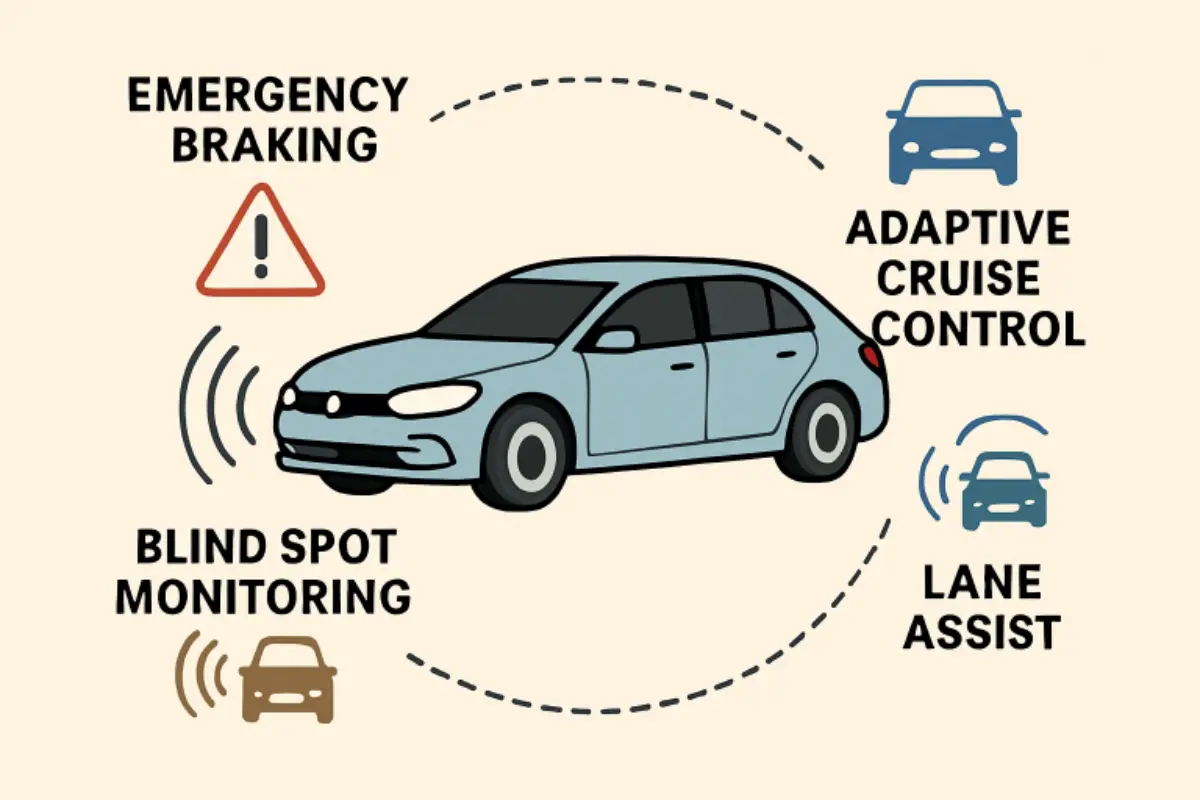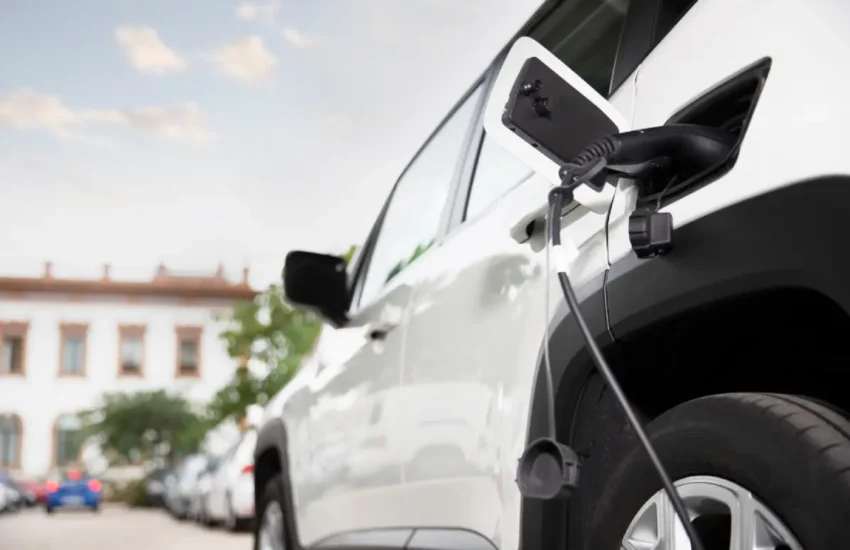
Modern cars offer advanced protection, enhancing safety and comfort. Sensors and computers scan for dangers, while drivers’ well-being is monitored. These features make driving smarter and safer, reducing distractions and busy roads.
Automotive safety is evolving with advanced features beyond seatbelts and airbags. These features reduce accidents and stress, making roads safer for all drivers, from experienced commuters to beginners. Learn more about the latest models and technologies available to consumers to discover new vehicle options that incorporate these cutting-edge systems.
Contents
Automatic Emergency Braking (AEB)
Automatic Emergency Brakes (AEB) are among the most transformative safety enhancements found in vehicles today. Utilizing radar, cameras, and sensors, AEB systems monitor traffic conditions and engage the brakes if a collision seems imminent and the driver fails to respond promptly. Federal studies indicate that AEB-equipped vehicles are far less likely to be involved in rear-end collisions, which cause frequent injuries and expensive repairs.
Lane Departure Warning and Lane-Keeping Assist
Lane Departure Warning (LDW) and Lane-Keeping Assist (LKA) help prevent one of the most common causes of roadway incidents—unintentional lane drifting. LDW systems alert you with audible or visual warnings if you veer across lane markings without signaling, while LKA gently steers you back toward the center of the lane. Research from Consumer Reports suggests that cars with these features experience 18% fewer accidents related to lane departures, significantly reducing the risk of side-swipe and head-on collisions.
Blind Spot Detection
Blind Spot Detection systems monitor areas beside and just behind your vehicle that can be difficult to see with mirrors alone. When another car enters these zones, the system alerts you—usually with a light on the side mirror or a gentle chime—so you’re less likely to make unsafe lane changes.
According to data published by the National Highway Traffic Safety Administration, this technology helps reduce lane-change crashes by 14%, offering immense reassurance for everyday driving on congested highways or city roads.
Adaptive Cruise Control
Adaptive Cruise Control (ACC) takes traditional cruise to the next level. Instead of maintaining a set speed, ACC monitors traffic flow ahead and automatically adjusts your speed to maintain a safe distance from the car in front.
This makes long drives less straining and reduces the chance of rear-end collisions. ACC is rapidly becoming a staple in luxury and mainstream models, delivering comfort and safety, turning highway driving into a more pleasant, confidence-inspiring experience.
Rear Cross-Traffic Alert
Parking lots can be a hotspot for minor accidents, often because it’s hard to spot approaching vehicles when you’re reversing. Rear Cross-Traffic Alert employs sensors to scan both sides as you back out of a space, warning you if a vehicle is approaching out of sight.
This feature is especially beneficial in crowded urban environments or busy retail centers where visibility is compromised and pedestrians and cars constantly move. Studies cited by Consumer Reports highlight how rear cross-traffic systems have led to significant reductions in low-speed backing crashes.
Driver Attention Monitoring
Drowsy and distracted driving are among today’s deadliest roadway hazards. Driver Attention Monitoring systems use cameras and sensors to study steering patterns, blink rates, and other subtle cues. If the technology detects signs that you may be losing focus or getting sleepy, it will alert you with a prompt to take a break.
According to industry experts, vehicles equipped with these monitors have helped reduce incidents caused by fatigue, adding an essential layer of protection, especially during late-night journeys or long road trips.
Emerging Trends in Vehicle Safety
The future of automotive safety is centered on smart integration and AI. Manufacturers will utilize AI to analyze traffic and environmental conditions in real time, introducing proactive systems like pedestrian detection and integrated dash cams that will lead to accident-free driving.
Driving Toward a Safer Future
Modern safety features are revolutionizing the driving experience by actively protecting drivers, passengers, and pedestrians alike. From automatic braking and lane assistance to attention monitoring, these technologies not only prevent accidents but also reduce driver stress and fatigue.
As automotive innovation continues to advance with artificial intelligence and smarter integrations, the promise of safer roads becomes increasingly attainable. Embracing these features today means stepping into a future where driving is not only more secure but also more confident and enjoyable for everyone.



Leave a Reply
You must be logged in to post a comment.